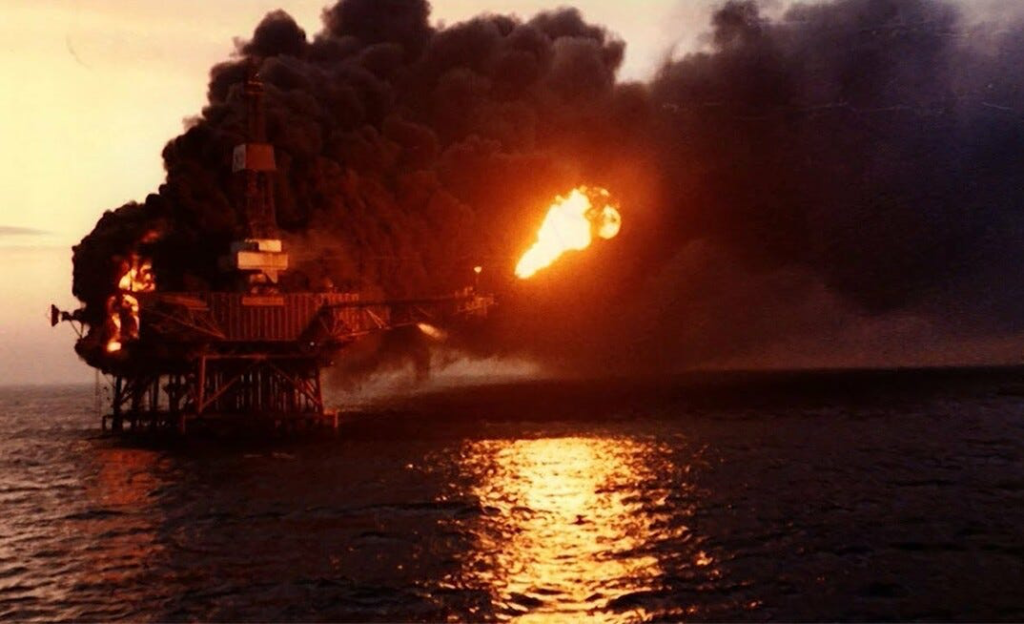Let’s talk about the Piper Alpha disaster, one of the most tragic events in the history of offshore oil platforms. It happened on the night of July 6, 1988. The platform was in the North Sea, and when explosions started and fires spread uncontrollably, 167 men lost their lives. What’s especially haunting about this disaster is that many crew members stayed in what they thought were secure rooms, instead of jumping into the ocean to escape the flames and smoke. Understanding why they made this choice involves looking at two important ideas: behavioral inertia and the expectation of rescue.

The False Sense of Security: Staying Put
When the first explosion hit, the crew had to make a critical decision: should they jump into the cold, dark waters of the North Sea, or should they seek safety in the “secure” areas of the platform, like the control room or their accommodation blocks? Many chose to stay on the platform, thinking these areas were designed to protect them. They believed that by staying put, they would be safe and eventually rescued.
But these so-called secure rooms turned out to be deadly. The fire was so intense that it weakened the platform’s structure, causing it to collapse. Smoke started to fill these rooms, and unfortunately, the very places the crew thought were safe became traps where many were overcome by smoke inhalation and died.
Behavioral Inertia: The Power of Habit
Now, let’s talk about behavioral inertia — a fancy way of describing how people tend to stick to what they know, especially when they’re under stress. In emergencies, people often fall back on familiar routines instead of trying something new and risky. For the crew on Piper Alpha, their training and daily habits focused on staying within the platform’s safety zones during an emergency. This behavior was so ingrained that, even in the face of disaster, many couldn’t break away from their routines to consider the extreme option of jumping into the ocean.
During a crisis, it’s hard to think clearly or assess risks. The intense heat, deafening noise, and thick smoke likely made it difficult for the crew to make rational decisions. Staying in a familiar environment, where they felt they had some control, was a natural, though tragically fatal, response.
The Expectation of Rescue: Waiting for Help That Never Came
Another key factor in why so many stayed on the platform was the expectation of rescue. In the oil and gas industry, workers are trained to believe that if something goes wrong, help will arrive quickly. On Piper Alpha, many crew members likely believed that if they stayed in the secure rooms, rescue teams would come to save them.
But the reality was different. The explosion and fires were so severe that rescue operations were extremely difficult. Helicopters and nearby vessels couldn’t get close enough to the platform because of the intense heat and dangerous conditions. The crew’s belief that they would be rescued, based on their training and experience, didn’t match the grim reality of what was happening on Piper Alpha.
The Survivors: Quick Thinking, Luck, and Rescue
Out of the 226 people on Piper Alpha that night, only 61 survived. Many of these survivors were among those who made the split-second decision to jump into the ocean. Their survival wasn’t just about courage — it was a combination of quick thinking, sheer luck, and the timely arrival of rescue teams.
Jumping into the freezing waters of the North Sea was incredibly risky. The cold could cause cold water shock, and hypothermia could set in within minutes. But for those who jumped, this risky decision saved their lives. Rescue boats and helicopters were able to pick up many of them, just in time.
The Lessons Learned: Challenging Behavioral Inertia and Rethinking Safety
The Piper Alpha disaster teaches us an important lesson about the dangers of behavioral inertia in emergencies. Training programs need to emphasize flexibility and the ability to adapt to unexpected situations. While it’s crucial to have designated safe zones and rescue plans, workers should also be encouraged to assess the situation and make decisions based on the immediate threats they face.
Moreover, the expectation of rescue should be balanced with the understanding that in some catastrophic situations, the best chance of survival may come from self-evacuation, even if it means taking drastic measures like jumping into the ocean.
In the end, the Piper Alpha disaster is a powerful reminder that in moments of crisis, the decisions we make — whether based on habit, fear, or hope — can determine whether we live or die. By understanding the psychological factors that influence our actions, we can better prepare for the unexpected and avoid repeating the mistakes of the past.